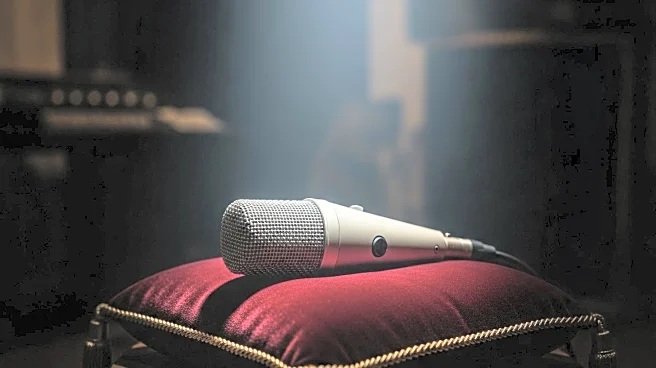What's Happening?
Telisha 'Nikki' Jones, a Mississippi-based lyricist, has signed a record deal with Hallwood Media for her AI-generated R&B artist 'Xania Monet.' The deal, reportedly worth $3 million, raises questions about copyright and the future of AI-generated music. Monet's music, created using the AI music generator Suno, has gained significant popularity on platforms like Spotify and Instagram. However, the use of AI in music creation presents legal challenges, as current copyright laws do not fully address AI-generated works. The deal highlights the cultural shift towards AI-generated content and the legal complexities it introduces.
Why It's Important?
The record deal for an AI-generated artist underscores the evolving landscape of the music industry and the challenges posed by AI technology. Copyright experts note that AI-generated works may not be eligible for copyright protection without human intervention, raising questions about the ownership and licensing of such content. This development is significant for artists, record labels, and legal professionals as they navigate the implications of AI in music creation. The case of Xania Monet illustrates the need for updated copyright laws that address the unique challenges of AI-generated content.
Beyond the Headlines
The rise of AI-generated music is prompting a reevaluation of traditional concepts of authorship and creativity. As AI tools become more prevalent, the distinction between human and machine-generated content becomes increasingly blurred. This shift has implications for the music industry, legal frameworks, and cultural perceptions of art and creativity. The case of Xania Monet highlights the need for ongoing dialogue and collaboration between artists, legal experts, and policymakers to address the challenges and opportunities presented by AI in the creative industries.









